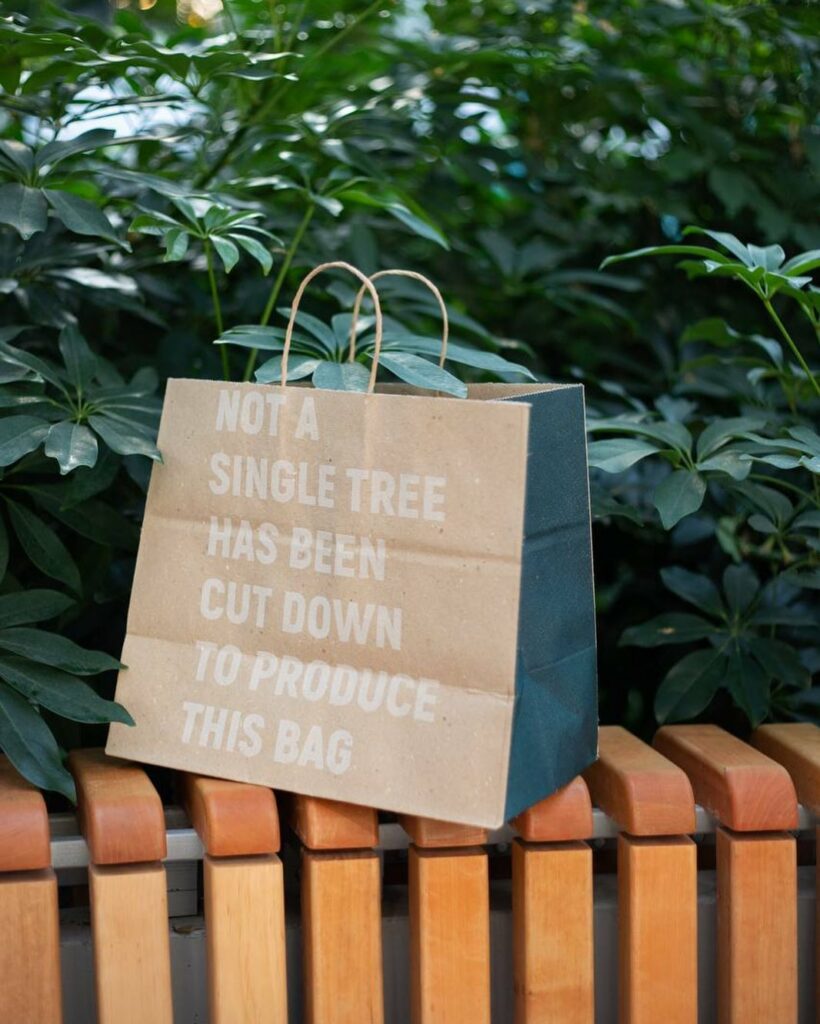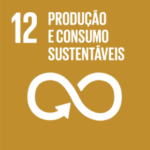
Chefs on Fire. In this festival, leftover food is transformed into energy
Here comes another edition of Chefs on Fire, one of the most important gastronomic festivals in the country. In addition to the sustainability actions that
We didn't find any happenings mapped to your criteria.
Try the traditional search to find articles not yet mapped with RUA.
We didn't find any happenings mapped to your criteria.
Try the traditional search to find articles not yet mapped with RUA.
We didn't find any happenings mapped to your criteria.
Try the traditional search to find articles not yet mapped with RUA.
We didn't find any happenings mapped to your criteria.
Try the traditional search to find articles not yet mapped with RUA.
At Releaf Paper, paper is produced from fallen leaves in streets and urban parks, which are transformed into sustainable paper packaging.
Releaf Paper is a Ukrainian startup that, instead of using leaves from healthy trees, uses fallen leaves collected from cities across Europe to make paper. One ton of pulp is produced from 2.3 tons of leaves, which saves 17 trees that would have been cut down to make the same amount.
The idea came from one of the founders, Valentyn Frechka, who tried to discover new ways of producing cellulose through biochemistry at school. After a failed experiment with grass and straw, he realized that it was possible to extract fibres from leaves using a combination of chemical and mechanical processes.
After creating a working prototype, he moved to Paris because of the war in Ukraine and founded the startup with his partner Alexandre Sobolenko.
Releaf Paper collects leaves from urban ecosystems in cities, mainly from parks and sidewalks, which would otherwise be burned. Collection is carried out by municipal services or by private companies contracted by the cities. It is estimated that an average city collects at least 8,000 tons of leaves a year and Europe’s total potential exceeds 1 million tons in urban areas alone.
“We’re only working with the leaves we get from the cities because we can’t use the leaves from the forest. It’s not easy to collect them in the forest and there’s no need because there’s an ecosystem. In a city, it’s green waste that has to be collected. In fact, it’s a good solution because we’re keeping the balance – we get fibre to make paper and we return the lignin as a semi-fertilizer for the cities, to fertilize the gardens or the trees. So it’s a win-win model,” Frechka explains to Euronews.
The process involves removing all the solid compounds from the leaves, drying them and turning them into pellets. In this way, it is possible to store the raw material all year round and ensure a continuous production cycle. The pellets are then converted into a special fiber that forms the basis of the paper and the resulting pulp is pressed and rolled into sheets of paper.

Despite being a complex technological process, production is carried out with the least possible impact on the environment: it emits 78% less carbon dioxide (CO2), uses three times less electricity, uses 15 times less water, avoids deforestation and, since the leaves are collected exclusively in urban areas, there is no negative impact on the soil or the life of microorganisms. What’s more, the paper degrades in the soil in 30 days, while the degradation period for traditional paper is 270 days or more.
The company sells paper from 70 to 300 g/m² suitable for different customer segments: for paper mills it offers fiber made from sheets, for converters it supplies paper in rolls, and for brands and retailers it has a range of packaging made from fallen sheets, including bags, envelopes, corrugated cardboard boxes, egg cartons, among other products.
The company currently produces around three million shopping bags a month and has clients such as L’Oréal, CHANEL, Samsung, LVMH, Logitech and Schneider Electric, among others. Portugal is on the company’s list of more than 20 client countries.
This month, the first commercial plant will open on the outskirts of Paris, but the startup hopes to have production units all over the world. With the capacity to process 5,000 tons of leaves a year, the first plant, partly financed by the European Union, will receive green waste from the French capital.
Frechka has already been recognized with several awards since the start of his company and is now one of the three finalists for the “Young Inventor 2024” award from the European Patent Office (EPO), the results of which will be announced on July 9.
According to the World Wide Fund for Nature (WWF), the paper industry accounts for 13-15% of total wood consumption and uses 33-40% of all industrial wood sold worldwide. Through innovation and responsible production, Releaf Paper has emerged as a solution in line with the United Nations Sustainable Development Goals (SDG 9 and SDG 12).


Here comes another edition of Chefs on Fire, one of the most important gastronomic festivals in the country. In addition to the sustainability actions that

From July 31st to August 4th there will be another edition of the Tradidanças festival, the one that gets everyone of all ages dancing for

Greenpeace opens office in Portugal and brings the icebreaker Artic Sunrise. The organization’s focus will be on fighting fires and protecting biodiversity, especially the oceans.

This article promotes an action that encourages the reduction of waste generation through prevention, reduction, recycling, and reuse.
➡️ To discover more businesses that are aligned with Sustainable Development Goal 12 “Sustainable Production and Consumption” click here.
➡️ For news, tips and interviews about this topic, click here.
➡️ Want to know more about the 17 United Nations Sustainable Development Goals? Click here
Esta publicação também está disponível em:
![]() Português (Portuguese (Portugal))
Português (Portuguese (Portugal))

